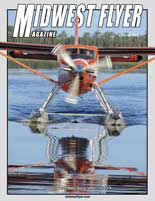by Greg Reigel
According to the FAA, the answer is “yes.” This question was discussed and answered in a recent legal interpretation issued by the FAA’s Office of Chief Counsel. The issue arose after the FAA amended FAR 47.40 to mandate that failure to renew an aircraft’s U.S. registration at the end of the three-year registration period results in the expiration of the certificate. Apparently at least one Flight Standards District Office (FSDO), and other individuals, had taken the position that an aircraft could not be returned to service as airworthy after an inspection if the aircraft’s U.S. registration had expired.
The interpretation initially observed that an aircraft’s airworthiness certificate is not “effective” if the aircraft’s U.S. registration is expired. It also noted that FAR Part 43, which contains the FAA’s general maintenance rules, applies to a U.S. registered aircraft, whether or not it has a current registration certificate and “[n]othing in the regulation indicates that a failure by the owner to renew the registration is a type of discrepancy contemplated by Part 43.”
The interpretation concluded that “no current FAA regulation proscribes an approval for return to service of a U.S.-registered aircraft following an inspection required by parts 91, 125, or 135 if the aircraft’s registration certificate is not current.” As a result, an aircraft may be approved for return to service as airworthy as long as the aircraft:
1. has an airworthiness certificate (regardless of whether or not it is effective);
2. conforms to its type certificate (including any applicable supplemental type certificates (STC) and is in compliance with all applicable airworthiness directives (AD); and
3. is in condition for safe operation.
What can we learn from this situation, beyond the obvious interpretation of the regulations?
FSDOs don’t always interpret or apply the FARs correctly. As a result, if you disagree with a FSDO’s interpretation and application of the FARs, you should definitely pursue relief up the FAA food-chain to the regional or national level. Although you still may not get the relief you would like, at least you should be able to get the correct answer.
EDITOR’S NOTE: Greg Reigel is an attorney with Reigel Law Firm, Ltd., a law firm located in Hopkins, Minnesota, which represents clients in aviation and business law matters (www.aerolegalservices.com, 952-238-1060).
Email your questions or comments to: greigel@aerolegalservices.com.










